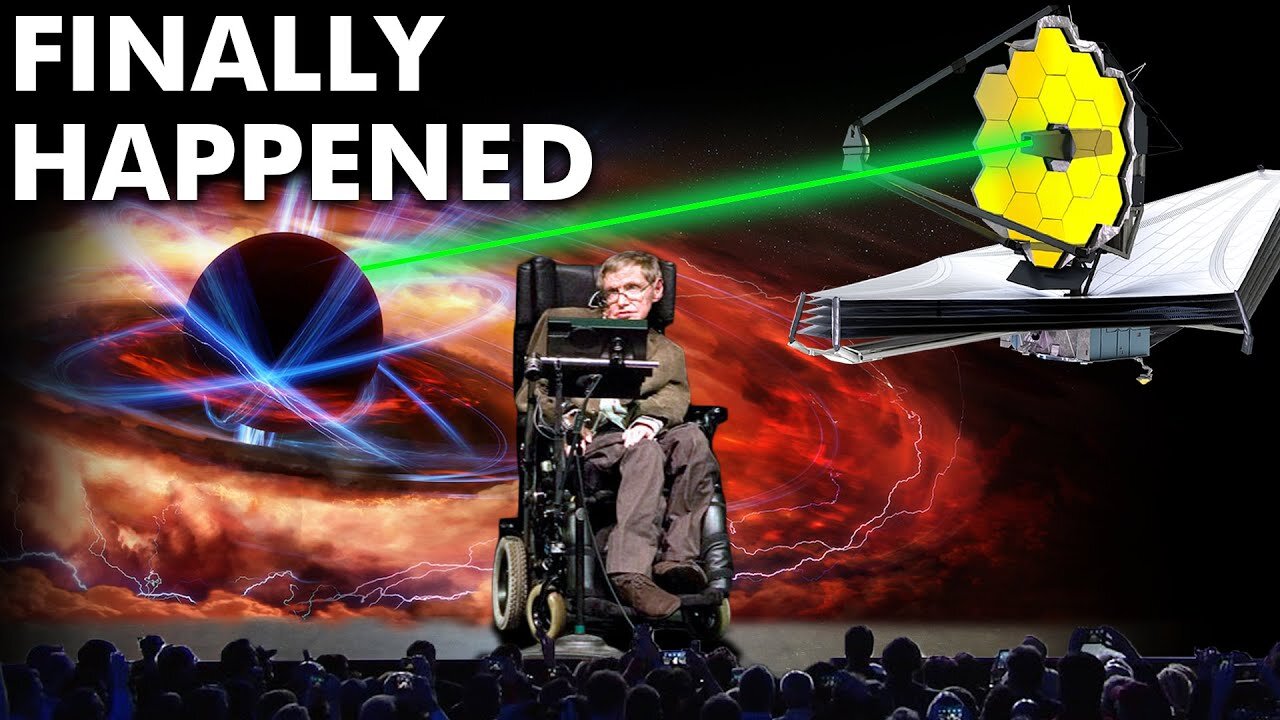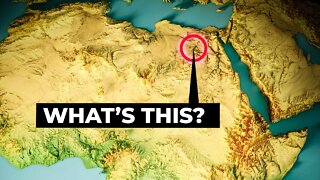Premium Only Content

James Webb Telescope Is FINALLY Proving Stephen Hawking's Black Hole Theory!
Stephen Hawking was one of the greatest scientists of our time! Even though he is
gone, his legacy leaves on in the world of astrophysics and science at large. As we
approach the fourth anniversary of this legend's death, the James Webb Space
Telescope is about to prove yet one of Hawking's theories, the Black Hole theory, right!
What is Hawking's Black Hole theory, why is it controversial, and how does the theory
affect you personally? Join us as we dive into how the new James Webb Telescope will
finally prove Stephen Hawking Black Hole theory!
Black holes are one of the most fascinating features in space, and they attract the
attention of many astronomers! From their creation to their features, black holes are
mesmerizing! What are black holes anyway? A black hole is a region in space where
the pulling force of gravity is so strong that light is not able to escape. Black holes have
strong gravity forces because matter inside them has been pressed into a tiny space.
Since no light can escape, you can't see black holes, and neither can most telescopes!
However, space telescopes with special instruments can help find black holes. They
can observe the behavior of materials and stars that are very close to black holes.
Black holes can come in a range of sizes, but there are three main types of black holes.
They are classified based on their mass and size. The smallest ones are known as
primordial black holes. Scientists say this type of black hole is as small as a single atom
but has the mass of a large mountain! The most common type of medium-sized black
hole is called stellar. The mass of a stellar black hole can be up to 20 times greater than
the mass of the Sun and can fit inside a ball with a diameter of about 10 miles! You will
find dozens of stellar-mass black holes within the Milky Way galaxy.
The largest black holes are called supermassive. This type has masses greater than 1
million suns combined and would fit inside a ball with a diameter about the size of the
solar system. Every large galaxy contains a supermassive black hole at its center. The
supermassive black hole at the center of the Milky Way galaxy is called Sagittarius A. It
has a mass equal to about 4 million suns and would fit inside a ball with a diameter
about the size of the Sun.
How do black holes come about? Well, if we are talking about primordial black holes,
those were formed in the early universe, soon after the Big Bang. But stellar black holes
form when the center of a very massive star collapses in upon itself. This collapse also
causes a supernova, or an exploding star, that blasts part of the star into space.
Scientists think supermassive black holes formed at the same time as the galaxy they
are in. The size of the supermassive black hole is related to the size and mass of the
galaxy it is in.
What happens when you are near a black hole? That might never happen because the
closes black hole to us is far away enough that you will never get near it. New black
holes are found all the time, but the currently closest one to us is about 1,500 light years
away from us! It was nicknamed the Unicorn and is located in the Monoceros
constellation. However, imagine you somehow stray close enough to a black hole. It will
pull you in, and lots of things will happen to you at the same time. You're ultimately
going to get torn apart by the extreme gravity! No material, especially fleshy human
bodies, could survive intact. So once you pass beyond the edge of the event horizon,
you're done. There's no getting out. Even if you were still alive, you'd have to travel
faster than the speed of light to escape, which is impossible!
There is much to learn about black holes, including testing one of Stephen Hawking's
controversial theories on dark matter in the universe. However, before scientists can
test Hawking's theory, they need a powerful telescope that can see beyond all existing
ones. This is where the James Webb Space Telescope, JWST, comes in!
Decades in the making and costing almost 10 billion dollars, the JWST eventually
launched to space late last year. The whole science world held its breath as the space
telescope blasted off from French Guyana. It was so complicated that too much
vibration during the launch would have caused damage and doomed the whole
operation! Because of its massive size, the engineers had to fold it up in several places
to fit into the launch rocket! The reflecting mirror, made up of smaller hexagonal gold-
plated mirrors, had to be folded. If not, the six-meter structure would not have fit into any
existing rocket! The heat shield also had to be folded and is even more delicate while
being large! It contains five layers that must be set to align perfectly, or the whole setup
won't work. Each of these layers, the size of a tennis court, is made from a special
material.
-
 10:28
10:28
Future Space
2 years agoScientists Terrifying New Discovery In Egypt Changes Everything!
84 -
 1:05:35
1:05:35
Man in America
10 hours agoFort Knox & Trump’s Secret Gold Move—The Financial Reset NO ONE Is Ready For?
46K22 -
 2:21:20
2:21:20
Robert Gouveia
7 hours agoTrump Goes to SCOTUS! Judge CAVES on DOGE? Fani Willis Not Happy!
82.3K21 -
 20:41
20:41
Stephen Gardner
7 hours ago🔥You Won't BELIEVE What JUST Happened To Don Trump Jr.!!
79.4K123 -
 58:00
58:00
The StoneZONE with Roger Stone
5 hours agoEuropean Leaders Resist Trump Peace Overtures To Their Own Demise | The StoneZONE w/ Roger Stone
56.8K11 -
 9:29
9:29
AlaskanBallistics
6 hours ago $2.30 earnedWyoming Suppressors and Rifles at Shot Show 2025
52.9K2 -
 1:06:40
1:06:40
Donald Trump Jr.
10 hours agoThe Left is Taking one L After Another, Live with Michael Knowles | Triggered Ep. 217
150K108 -
 47:17
47:17
Kimberly Guilfoyle
10 hours agoWoke Gets DOGE’d, Live with AJ Rice & Jarrett Stepman | Ep. 197
112K42 -
 20:11
20:11
Candace Show Podcast
9 hours agoBecoming Brigitte: Candace Owens x Xavier Poussard | Ep 6
168K312 -
 8:25:38
8:25:38
Dr Disrespect
13 hours ago🔴LIVE - DR DISRESPECT - ELDEN RING DLC - REVENGE
179K21